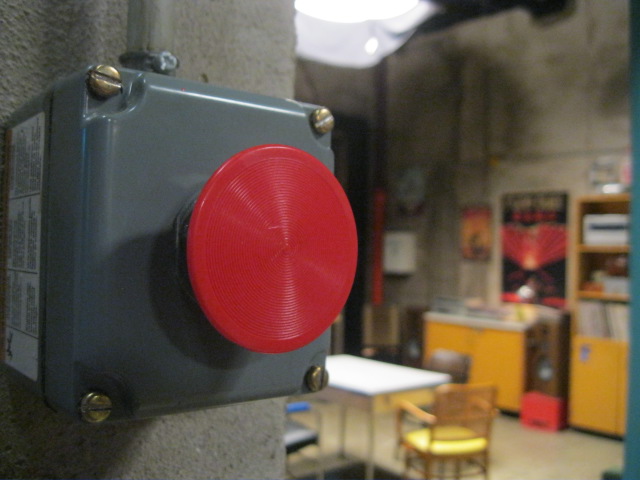CBC has a tough time every fall up against the bright shiny new objects being dangled on the private networks. When I called head of scheduling Christine Wilson to get her side of the numbers story I filed today for The Canadian Press, she characterized the fall as “ulcer time” at CBC.
No kidding. You’re up against all that U.S. network promotion for The X Factor, 2 Broke Girls, Pan Am and Terra Nova. You have The Right on your back to open the books and show accountability for that $1.1 billion annual TV and radio appropriation. You have the culture vultures on The Left whining that you don’t show enough opera and dance.
In short, you just can’t win.
Still, CBC, which less than a year ago was bragging it was nipping at Global’s heels (those hockey playoff numbers cover a lot of ills), is now running fifth, sixth or seventh most nights in most prime time slots in Canada.
Look at the numbers just from this week: Michael Tuesdays & Thursdays 178,000. InSecurity 192,000. The Debaters 162,000.
More shocking may be how far some of the CBC hits have fallen. The Rick Mercer Report has a “Best of 2010” (?) repeat on this week which dragged it down to 569,000 Tuesday. Battle of the Blades Monday skidded to 686,000 Monday. Being Erica dropped down to 272,000.
Dragon’s Den is still relatively robust at 1,157,000 but that’s still a half million viewers less than at this time last year. Move people live in Brampton, Ont., than watched Camelot last week across Canada (431,000 viewers).
Now, everybody but CTV Two and City are down so far this season in Canada. As Wilson suggested, they’re probably not exactly popping champagne corks these days over at Global and CTV, although each of those networks have had some reasons to cheer.
The CBC has had none, except perhaps for cheering on The Leafs’ fast start on Hockey Night in Canada. The CP piece covers many of the more obvious reasons for CBC’s fall stumble. Two are the surging ratings so far this season for up ‘n’ comers City and CTV Two. CBC hits like Battle of the Blades and Dragon’s Den are now getting gang tackled.
One other factor may be the switch from analog to digital signals across Canada last August 31. While CBC won a one year reprieve from the CRTC in most of rural Canada (areas where the population is 300,000 or less), those darkened sets in the cities likely represented CBC viewers.
Conventional wisdom suggests older folks in remote and far reaching areas of Canada were the ones clinging hardest to Coronation Street and The National and that AMC, CNN and other specialty channels were just not on their radar.
Recent visits by this reporter to Dawson City, Yellowknife and Whitehorse brought evidence that these remote areas were well served by satellite. Who knew you could get Hamilton, Ont., super station CHCH, Los Angeles-based KTLA and St. John’s Nfld.’s NTV in the Klondike?
Evidence is strictly anecdotal, but the loss of those rabbit ear and antenna viewers on college campuses in Toronto and Vancouver—where many students, rather than adding cable or satellite charges to their monthly expenses, quickly found their favourite shows on the Internet—and in fringe rural areas surrounding Ottawa, Montreal and other major Canadian cities, could also account for some of the overall drop in CBC viewership.
More challenged lie ahead for CBC. They’ve pledged to walk away from Jeopardy! and Wheel of Fortune by the end of this season, two table setters that are pulling more eyeballs–albeit older ones–than most of their prime time fare so far this season.
Then there is the future of CBC’s Olympics–Hockey Night in Canada. Is there even that much ulcer medication in all of Canada?
Follow @BillBriouxTV

Next Post







2 Comments
CBC radio came into existence in the 1930s because the cost of linking stations together with actual wirelines was too high for any private company to assume.
Likewise CBC-TVs in the 50s.
The mandate was to provide Canadians with information about other parts of the country. Nowadays the other networks, particularly CTV, are doing an excellent job of that….and anyone can feed a network with a satellite dish on their roof.
Technologically and in its purpose the CBC is an expsneive dinosaur.
Good report Bill. The CBC is on its death bed and will continue to flop. It is time for the government to pull the plug and if CBC can survive it may use the PBS model with support ONLY from those who view. CBC News is already a laugh and unfortunatly CTV under its new ownership is falling into the same gutter.